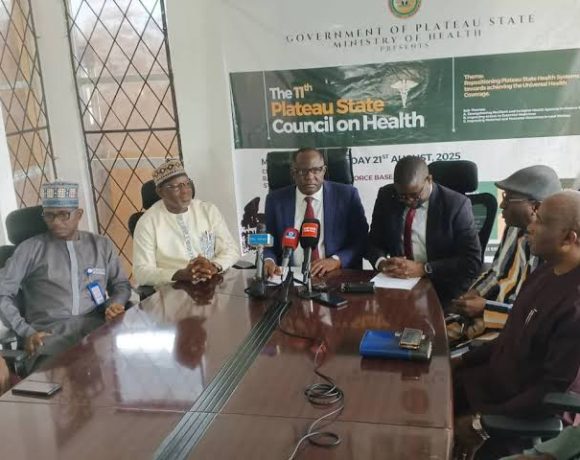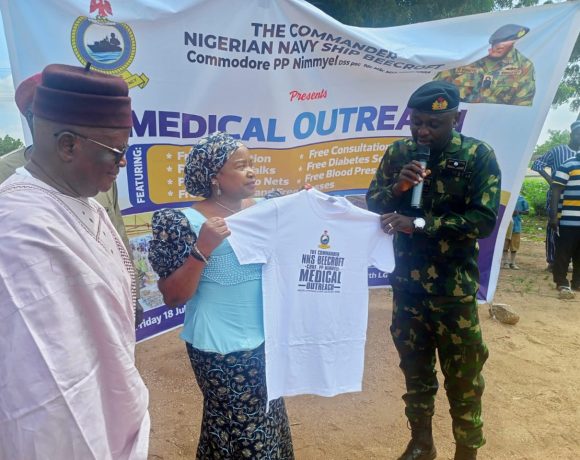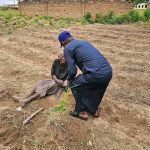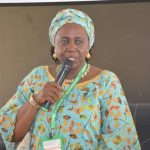Nigeria’s INEC boosts Liberia’s election technology
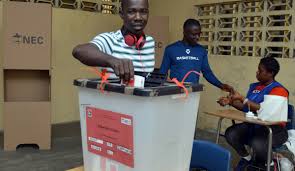
Nigeria
Liberia’s National Elections Commission (NEC) has expressed deep gratitude to Nigeria’s Independent National Electoral Commission (INEC) for providing critical technological support that is set to transform the country’s electoral processes. This collaboration has resulted in the establishment of a state-of-the-art Information and Communication Technology (ICT) room at Liberia’s NEC headquarters, a vital tool in advancing election transparency, efficiency, and credibility.
In an age where technology plays a growing role in the administration of elections worldwide, Liberia’s NEC recognized the urgent need to upgrade its infrastructure to meet modern standards. The new ICT facility is equipped with tools and capabilities that facilitate efficient data management, voter registration updates, real-time communication, and the secure processing of electoral information.
An emotional official from Liberia’s NEC, speaking during an event marking the handover of the ICT room, expressed appreciation for the partnership between Liberia and Nigeria, emphasizing the transformative impact of the new facility: “Because of your intervention, we now have a dedicated ICT room that will be instrumental in managing our elections. This upgrade is more than just equipment; it is a foundation for transparent, credible, and efficient electoral management that will earn the trust of our citizens and the international community.”
This significant upgrade did not happen overnight. It is the result of a deliberate partnership facilitated by the ECOWAS Network of Electoral Commissions (ECONEC), which serves as a regional platform for cooperation among election management bodies across West Africa. Nigeria’s INEC stood out as a key leader in this initiative, offering its experience, technical expertise, and resources to strengthen electoral bodies in neighboring countries.
Professor Mahmood Yakubu, Chairman of INEC, has been at the forefront of Nigeria’s efforts to promote democratic values and technological advancement in elections both domestically and across the region. Under his leadership, INEC has successfully deployed innovative systems such as biometric voter registration, electronic transmission of results, and improved ICT infrastructure—best practices that have now been shared with Liberia’s NEC.
Professor Yakubu noted in a statement: “Our vision is to support the democratic process not just in Nigeria but throughout West Africa. By helping Liberia build its ICT capacity, we contribute to creating stronger, more credible electoral institutions. This regional cooperation is essential to consolidating democracy and peace in our countries.”
Beyond the provision of physical ICT infrastructure, the partnership underscores a robust exchange of knowledge, training, and ongoing technical support. Members of the Liberian electoral commission recently visited Nigeria to engage directly with INEC officials and technical teams. During this exchange, they gained hands-on experience in managing electoral technology, data security, and system troubleshooting.
A member of the Liberian delegation highlighted the benefits of this cooperation: “We are here to learn from Nigeria’s experience and expertise. The knowledge we gain will help us improve our electoral systems and processes when we return home. This kind of cross-border support is invaluable as we strive for free, fair, and transparent elections.”
INEC’s approach to electoral technology and management has evolved over years of handling complex elections in a large and diverse country. Sharing these insights with Liberia marks a step toward standardizing best practices across West Africa.
The collaboration between Nigeria and Liberia is also part of a larger regional effort to harmonize electoral processes and bolster institutional capacity throughout West Africa. ECONEC and the Economic Community of West African States (ECOWAS) have increasingly prioritized electoral integrity as a cornerstone of peace and stability.
Electoral crises in the region have demonstrated how weaknesses in election management can trigger political instability. As such, building resilient electoral institutions that can withstand challenges like misinformation, logistical failures, and attempts at manipulation has become a paramount regional goal.
This strategic ICT upgrade is seen as a replicable model for other West African nations seeking to modernize their election commissions. It highlights the importance of not only technological investment but also regional solidarity, where countries pool knowledge and resources.
Information and Communication Technology has become indispensable in democratizing election processes worldwide. The use of ICT can drastically reduce common electoral problems such as inaccurate voter registries, delayed result transmissions, and opportunities for fraud.
In Liberia, a country that continues to rebuild and strengthen its democratic institutions after years of civil conflict, adopting reliable technology for elections is critical. The ICT room will enable Liberia’s NEC to deploy secure voter databases, enhance communication across electoral offices, and improve transparency throughout electoral cycles.
The technology also facilitates quicker collation and dissemination of results, reducing the window of uncertainty that can lead to disputes and unrest. In addition, robust ICT infrastructure supports effective voter education campaigns and election monitoring, further increasing public confidence.
The successful implementation of election technology directly contributes to public trust in the electoral process—a crucial factor in any democracy. Liberia’s NEC officials emphasized that the ICT room is more than a technical asset; it is a symbol of the commission’s commitment to open, transparent, and accountable elections.
According to Liberia’s NEC spokesperson, “Our citizens must be assured that their votes count and their voices are heard clearly. This ICT upgrade, made possible through Nigeria’s support, sends a strong message that we are committed to protecting the integrity of the electoral process.”
International observer groups and civil society organizations have long highlighted the need for technological modernization in Liberia’s elections. With these advances, the country is positioning itself as a regional example of steady progress in electoral reform.
While the installation of the new ICT facility marks an important milestone, both Liberia and Nigeria acknowledge that ongoing collaboration and support will be necessary to maintain and build upon these gains.
INEC has pledged to provide continuous advisory services, training workshops, and technical assistance to Liberia’s NEC to ensure the sustainability of its electoral technology systems. This commitment reflects a shared understanding that democracy is a continuous journey, requiring constant adaptation and innovation.
Professor Yakubu concluded, “Democracy depends on the credibility of elections. We are proud to assist Liberia not only with technology but with guidance and partnership that will endure beyond a single election cycle. Together, we can build West Africa’s democratic future.”
Nigeria’s INEC has significantly contributed to enhancing Liberia’s election technology through the creation of a dedicated ICT room at Liberia’s NEC. This initiative, born out of regional solidarity and ECONEC’s coordination, exemplifies how collaborative efforts can strengthen democracy across West Africa.
With improved technological infrastructure and expanded knowledge-sharing, Liberia is better equipped to run efficient, transparent elections that reflect the true will of its people. The partnership also represents a hopeful model for neighboring countries and democratic institutions striving to consolidate electoral integrity.
As West Africa continues to face democratic challenges, Nigeria and Liberia’s joint effort offers a beacon of progress, emphasizing that technological advancement combined with regional cooperation is essential to advancing credible elections and peaceful governance in the region.




